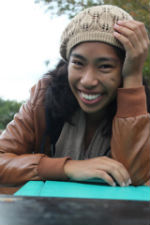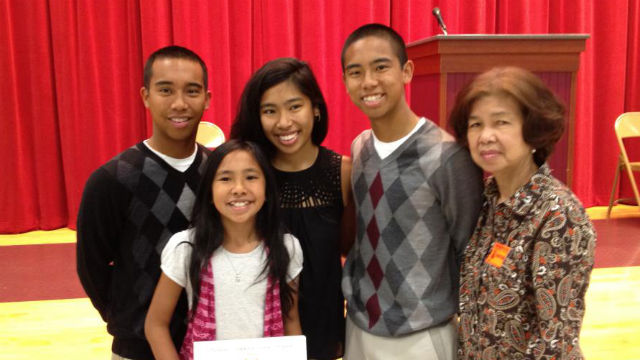SUMMARY
This is AI generated summarization, which may have errors. For context, always refer to the full article.
 This afternoon, I’m writing from Mae La Noi, a village in the mountainous province of Mae Hong Son, Thailand. Known for it’s winding single-lane highway of over 1,000 curves, Mae Hong Son is right on the border of the Karen State of Burma (Myanmar). The nearest major city, Chiang Mai, is a 5-hour bus ride from here.
This afternoon, I’m writing from Mae La Noi, a village in the mountainous province of Mae Hong Son, Thailand. Known for it’s winding single-lane highway of over 1,000 curves, Mae Hong Son is right on the border of the Karen State of Burma (Myanmar). The nearest major city, Chiang Mai, is a 5-hour bus ride from here.
I’ve been in Mae La Noi since July 2012, and I’m currently wrapping up a 13 month-long teaching fellowship. I work at a middle and high school, and most of the students are from hill tribes.
When people here ask where I’m from, answering that I’m from America initially creates confusion. I don’t look like other farang (foreigners) who typically travel through Mae Hong Son.
They have blonde or brown hair and fair skin. I have thick, dark hair and skin that turns a shade darker after spending 30 minutes in the sun. After several encounters with people who reason that I look Thai, I learned to clarify that both of my parents are from the Philippines, but my family now resides in the US. This usually settles any dust of confusion on the matter.
So, where are you from?
I often dread it when people ask me where I’m from, because I don’t have simple answer to offer. I believe the question requires alternate answers, all of which have been prepared in advance and are carefully selected depending on the situation.
I’m not in the middle of an identity crisis; I know who I am and where my roots are. But to me, where one is from is more than a “hometown” or a place where one has lived for a majority of his or her life. Home is an environment that is painted by the people around you.
.jpg)
A military brat and third culture kid
I grew up in a military brat subculture. Though I didn’t live abroad during my childhood like most military kids do, I still believe I’m a third culture kid, as I’ve lived in very different parts of the country.

However, I don’t fit the conventional mold of living and growing up in a single place. I am from a military family. My dad, grandpa, and uncle enlisted in the US Navy, left their home country and made countless sacrifices to provide for their family. I’m grateful for their effort and dedication, because the military lifestyle isn’t necessarily an easy one.
Being a military brat means moving around. My 3 younger siblings and I have been uprooted and replanted a handful of times. I’ve lived in liberal and conservatives settings. I’ve lived in suburbia and quiet beach areas, where the closest mall was an hour drive away.
We’ve lived in all 3 US coasts — including southern California in the West coast, Pensacola in the Gulf coast, and Virginia Beach in the East coast. Each of these regions have distinct cultures. Being introduced to each of these made it difficult to identify with a single one.
When you’re moving every so often, you’re constantly learning to readjust, but cannot claim ownership over a specific place. Still, with each new culture came appreciation for a new lifestyle.
Moving to each place required a great deal of flexibility to assure a smooth transition. As a kid, this can be tough. Friends can be hard to make — and keep. When you’re the new kid, not only are you trying to catch up with curriculum and extracurricular activities, but you’re also searching for acceptance and a niche to call your own.
The upside to this lifestyle is that one is exposed to different perspectives and cultures. I learned to be tolerant and accepting of people from different backgrounds and walks of life; it is these very people who made me feel welcome in a new place. I am very appreciative and thankful that I’ve been able to discover new homes as often as I have.
Not one home, but several
As I got older, I found several other places to call home. I went to a university in the heart of Williamsburg, Virginia, and was knee-deep in colonial American history and pride. At William & Mary, I was surrounded by like-minded individuals who were active and engaged citizens in academics, service and diversity.
I spent summers away from my family, studying abroad or interning. During all of these experiences, I always put myself out there to meet people and hear their stories. I constantly crave new homes and friendships, and I’ve learned to satisfy this recurring hunger by exploring new places and taking chances.
I have been overseas on my own for just over a year now. Moving abroad completely on my own has proved to be one of the greatest trials of my life. Despite the language barrier here, I’ve been lucky to find niches within the sub-district.
The teachers give me an ample amount of support and love; they’re perceptive and always ask if I’ve eaten, bathed or exercised — the latter not being a typical Thai greeting, but stemming from their observation of my routine workouts. They’re curious about how I’m feeling or if there are too many mosquitoes in my simple, but quaint, A-frame house.
The dormitory students, who happen to live right across the street from me, feel more at ease when we’re not in a classroom setting. They love to practice their English with me over dinner (which they take turns cooking themselves) or during evening study hours.
In Bah Mah village, one can find a Catholic Karen (a hill tribe historically from Burma) community, which is located only 5 minutes — by motorbike — north of the school.
The church is adjacent to the Caesar Cusan’s Educational Center, a Catholic children’s home for students whose hometown is too far to commute to and from school everyday. It is a home that I consider to be a rare gem. I attend Mass with the students weekly and I get to learn a side of Thailand that foreigners usually don’t see.
The people, not the place
In each of the places I’ve lived, studied and worked in, I have found a home. My family, which remains the most important part of my life, has always made any house feel like home. No matter where we move, or how often my dad is out on deployment, we have a tight bond.
In addition to my loving family, I’ve come across a home with the supportive friends I have made in each new environment. Being the “new kid” every now and then means saying good-bye. It means that I have to pack up and leave behind all that have become familiar to me. But it also means a fresh start and a new story to tell.
I grew up knowing the importance of having an open mind. I feel that I’ve become more adaptive with each new chapter in my life. The refreshing change helped me to see each new town, city and environment as a place I could call my own.
Some places may be homes for several years, and some for only a few months. But at the end of the day, it is the people that turn a place into a home. – Rappler.com
Ryann Tanap is an advocate for mental health and multicultural issues. She is a student blogger for the College of William & Mary in Williamsburg, Virginia.
Add a comment
How does this make you feel?
There are no comments yet. Add your comment to start the conversation.